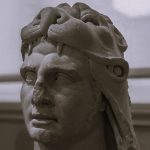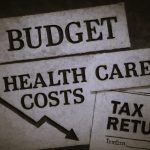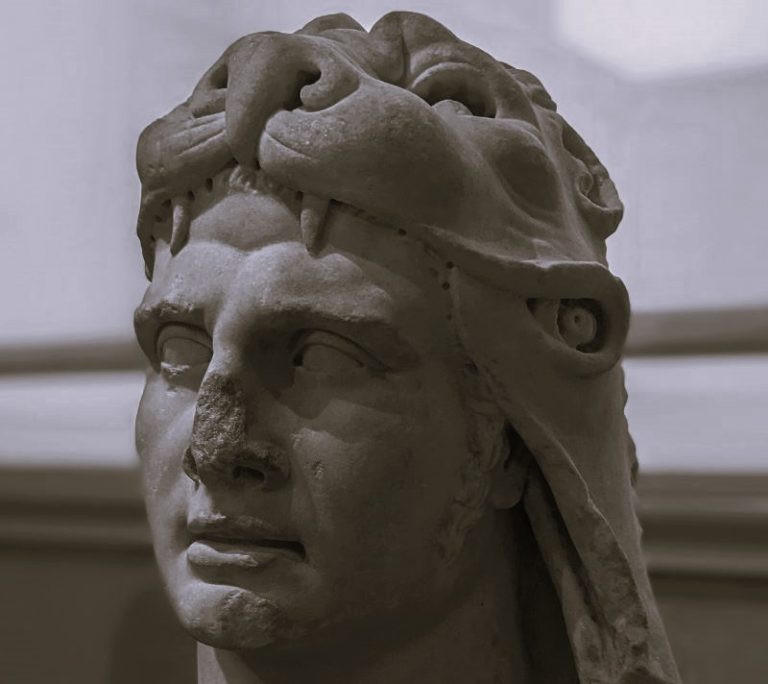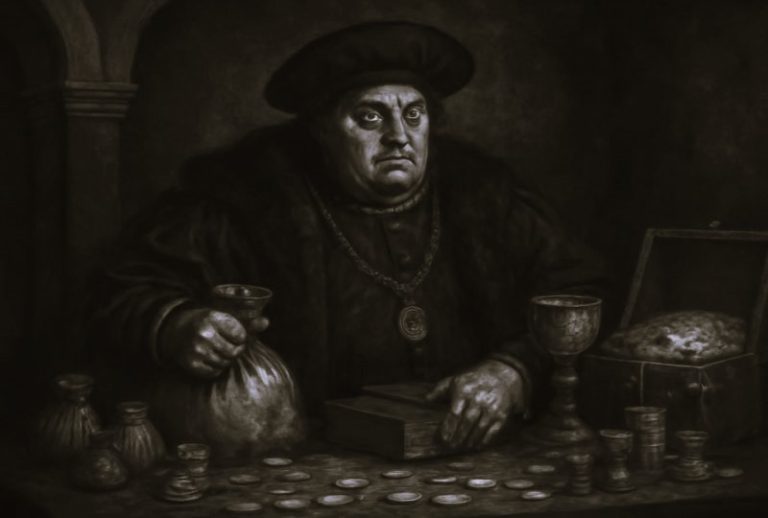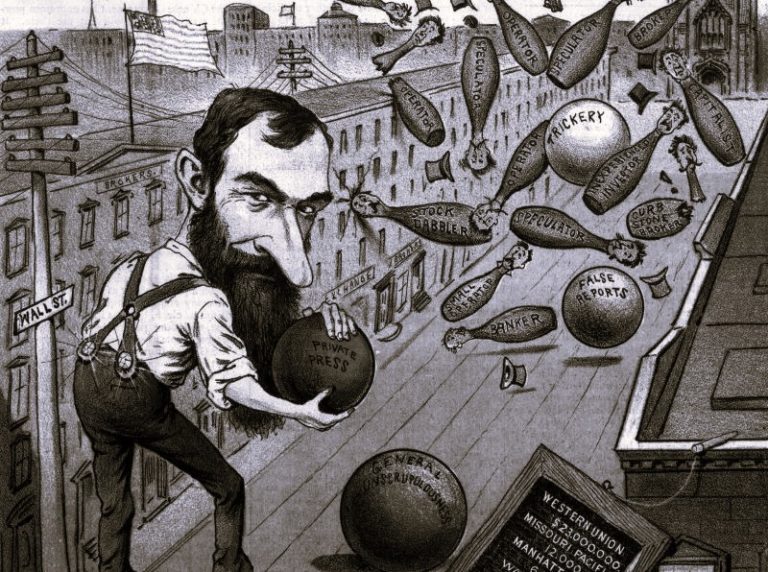

The subject inspired the drafting of the Bill of Rights.
By Ian Henderson
“All, too, will bear in mind this sacred principle, that though the will of the majority is in all cases to prevail, that will to be rightful must be reasonable; that the minority possess their equal rights, which equal law must protect, and to violate would be oppression.” – Thomas Jefferson1
Thomas Jefferson proclaimed his conviction and unwavering resolve to protect the electorate’s unalienable right to free speech and free press in his first fervent inauguration speech on March 4, 1801. Jefferson symbolized a renaissance for the burgeoning country, as he defeated the Federalists and accepted the peaceful transfer of power in a new venue, the District of Columbia. The distinguished Virginian statesman sought harmony with the Federalist Party and discarded discord as detrimental to the development of unity. Jefferson stressed the importance of the truth, as he valiantly fought for reform of the press. From his assertion to James Madison to include the protection of the press as a provision of the Bill of Rights to his drafting of the Kentucky Resolution which responded to the insidious Alien and Sedition acts, Jefferson dedicated himself to the preservation of the freedom of expression. Jefferson’s views, however, would evolve through a tumultuous struggle with the Federalists, as his opposition tarnished his reputation by way of sinister and defamatory remarks. In response, Jefferson lost his trust in the press, as he discovered the noxious nature of newspaper material. In response, he accepted limited campaigns by state governments to prosecute editors who printed libelous remarks. Thomas Jefferson consistently demonstrated his steadfast pursuit to restore credibility to newspapers and maintained a vision for the precious educational value of a fair press.
The debate over the importance of the freedom of the press in the new nation initiated a stirring movement for the drafting of the Bill of Rights. This particular basic freedom of expression would not become prominent in the minds of Americans until individual states began drafting state constitutions. In June 1776, the Virginia Constitutional Convention adopted the Virginia Declaration of Rights, a document which provided Thomas Jefferson inspiration for penning the opening paragraphs of the Declaration of Independence.2 This influential manuscript, written by George Mason, included the first official proclamation in favor of protecting the press. It stated, “The freedom of the Press is one of the greatest bulwarks of liberty and can never be restrained but by despotick Governments.’,3 Several states ratified similar tenets as part of their state constitutions; however, the first constitution of the United States, the Articles of Confederation, omitted a provision to protect the press. Jefferson, who was serving as a foreign ambassador to France, was not present at the constitutional debates, but he did voice his concerns to his fellow statesmen, James Madison, via letter correspondence. Jefferson vehemently championed the drafting of the Bill of Rights which would protect the expression of ideas.4 In 1787, Jefferson wrote a letter to Madison which stated, “I will now tell you what I do not like. First, the omission of a bill of rights, providing clearly, and without the aid of sophism, for freedom of religion, freedom of the press …”5 Two years later, the thirteen states ratified the Bill of Rights and freedom of the press became protected under the First Amendment of the Constitution. A fervent and passionate discussion concerning the meaning of this ideal would ensue.

Acting as Secretary of State, Jefferson’s dissatisfaction concerning the press involved the provincial nature of the New York papers as well as the anti-republican overtone of the press.6 Jefferson felt obliged to establish a trustworthy national newspaper which embodied republican principles. Jefferson expressed his conviction which was predicated on “a desire of seeing a purely republican vehicle of news established between the seat of government and all its parts.”7 John Fenno’s Gazette of the United States presented a challenge to Jefferson’s intentions. Fenno, who engendered support from Alexander Hamilton and John Adams, intended his publication to champion Federalist ideals and opposed the policies of Jefferson.8 Jefferson sought a nonpartisan newspaper which printed impartial material. He recruited and employed Revolutionary poet, Phillip Freneau, to produce such a publication. Jefferson sternly believed the public would select Freneau’ s National Gazette as their primary source of information and reject the partial Federalist publication.9
In 1792, the rift between Alexander Hamilton and Jefferson boiled over into the press. In a publication of the Gazette of the United States, Alexander Hamilton attacked Jefferson’s personal motives and alleged that he unethically used public funds to support the partisan National Gazette.10 Jefferson assumed a defensive position, and he solicited the aid of James Madison to defend his cause. Jefferson wrote angrily to Madison, “Nobody answers to him, and his doctrine will therefore be taken for confessed. For god’s sake, my dear Sir, take up your pen, select the most striking heresies and cut him to pieces in the face of the public.”11 Hamilton’s indicting remarks altered Jefferson’s view of the press, as he granted his support to a partisan publication.12 The Jeffersonsupported National Gazette wielded a clear partisan identity, as it championed Republican ideals in 1793 as American political divisions became more evident. The
Federalists, who expressed international neutrality, responded maliciously as Jefferson’s sympathetic sentiments for the French cause brought him ire.13 The Gazette of the United States indicted Jefferson for his Anti-Federalist rhetoric. They branded Jefferson as a traitor and proclaimed, “He that is not for us, is against US.”14 This would only mark the beginning of the Federalist’s prolonged campaign against Jefferson in the press.
During Jefferson’s term as vice president, the Federalist-dominated Congress acted to suppress the growing voice of the Jeffersonian Republicans by passing the Alien and Sedition acts.15 The Sedition act in particular was especially controversial. It prohibited the dissemination of false or defamatory writing against Congress or the president. Vice President Jefferson openly condemned the Federalist’s legislation, because the act failed to provide equal protection for his office.16 Federalist newspapers attacked and attempted to weaken the Republican’s party’s movement for unification. Jefferson responded summarily by constructing the Kentucky Resolutions which castigated the Federalist’s broad interpretation of the Constitution.17 Jefferson opposed the imposition of the federal government’s control over state affairs and declared the state’s right to self-preservation. He proclaimed, “Alllawful powers respecting the same did of right remain, and were reserved to the States or the people: that thus was manifested their determination to retain to themselves the right of judging how far the licentiousness of speech and of the press may be abridged without lessening their useful freedom.”18 Acting as a resourceful and tact politician, Jefferson publicized the Federalist’s transgression against American ideal of freedom, coalesced the Republican cause in the face of adversity, and subsequently secured the presidency in 1800.19 Jefferson, consistent with his opposition to the menacing legislation, pardoned every person who had been unjustifiably incarcerated and fined for publishing “false, scandalous, and malicious writings.”20 As President, Jefferson sought to restore the credibility of the press. He stated, “The people have learnt that nothing in a newspaper is to be believed. This is a dangerous state of things, and the press ought to be restored to its credibility if possible.”21 One of Jefferson’s solutions to this pressing problem would include his approval of the right of states to prosecute those who printed falsity.

Throughout Jefferson’s two presidential terms, Federalist printers continued to defame the reputation of the Virginian statesman, but it would be a former proponent of the Jeffersonian democracy which would alter Jefferson’s view of the press. Jefferson viewed his success in securing the presidency as a means to continue the Republican revolution, reaffirm its goals, and reinforce the goals of liberty and justice as espoused by the revolutionaries in 1776.22 Jefferson experienced numerous triumphs throughout his presidency including the acquisition of the Louisiana Purchase and his pursuit to improve educational standards, but he experienced numerous setbacks which dealt with an immoral, unrelenting media. The Federalists publicized several stories in the print media in an effort to discredit the character of Jefferson, but it was an Anti-Federalist, James Callender, who would pen the most indicting remarks?23 James Callender, an editor who had been prosecuted under the Sedition Act for championing Jefferson’s cause, penned malicious remarks about Jefferson concerning his relationship with Elizabeth Walker, alleged relations with Sally Hemings, and the repayment of a debt with depreciated money?24 Jefferson, angered over the allegations, lost his trust in a free press. In 1803, he proclaimed, “our newspapers, for the most part, present only the caricatures of disaffected minds … “25 Both Federalist and Republican newspapers, as embodied by Callender’s remarks, were guilty of Jefferson’s assertion.
The press, during this time period, could best be characterized as self-defeating and contradictory. The very purpose of the press, a vehicle which was intended to disseminate facts which further the knowledge of the public, was violated. State officials, most notably Governor McKean of Pennsylvania, pleaded with Jefferson to take action against the intolerable and seditious remarks of the press. McKean petitioned Jefferson for the approval to prosecute the offenders. Jefferson contemplated the idea for a week and responded to the governor’s request, “Not a general prosecution, for that would look like a persecution, but a selected one.”26 Jefferson’s intention was not to suppress freedom but to save it. In 1804, Republicans in New York and Pennsylvania prosecuted Federalist editors for seditious libel.27 Jefferson did not intervene in either case, but his heart remained dedicated to the free flow of ideas. During the same year, Jefferson expressed his desire for this reality as he stated, “The firmness with which the people have withstood the late abuses of the press, the discernment that have manifested between truth and falsehood, show that they may be safely trusted to hear everything true and false, and to form a correct judgment between them.”28 Jefferson intended the press to serve as a marketplace of ideas and act as a public educator.
Thomas Jefferson firmly held that the press should serve an educational function. He believed in the formation of an “empire for liberty” which was buttressed by an informed citizenry.29 The Founder of the University of Virginia championed the notion that citizenship, self-government, and literacy are interrelated. Jefferson hypothesized that literacy introduced the key to knowledge, granted the republic a stem safeguard against dissension, and protected the ideals of independence and self-govemment.30 An unfettered press, as Jefferson argued, often tended to exercise a reckless disregard for the truth, which interrupts this vital relationship. Jefferson recognized people’s inherent curiosity for sensationalism, but he castigated newspaper editors who preyed upon the public’s base indulgence of these unfounded stories.31 In 1807, Jefferson expressed this sentiment. He stated, “My opinion of the manner in which a newspaper should be conducted so as to be most useful [is]. .. ‘by restraining it to true facts and sound principle only.’ Yet I fear such a paper would find few subscribers. It is a melancholy truth.”32 Jefferson’s idealism pertaining to his vision of the press as an educator which was intended to propagate truth would not come to fruition during his presidency, but his contribution to the reform of the press would qualify as one of his most lasting and important legacies.
The “revolution of 1800” and the defeat of the Federalists symbolized a renaissance for the new republic. Unlike the previous transfer of power between the British monarchy and the colonists, this changing of the guard remained free of bloodshed. As Jefferson stated his intention for unity in his inaugural address, “We are all republicans: we are all federalists,”33 he remained dedicated to producing harmony between the two parties. Despite the Federalists’ defeat, an acrimonious battle persisted between the two parties in the press. Jefferson sought to restore the integrity of newspapers and renew the educational purpose which he believed they should serve. The noxious vapors which billowed from libelous articles, in particular the Callender libels, jarred Jefferson’s trust in the press experiment. Jefferson, acting as a champion for liberty, did not waver in his vision of a free and fair press. As evidence of this claim, in 1804, German scientist Alexander von Humboldt visited Washington. Humboldt glanced at an article which maliciously defamed the character of the president and asked Jefferson, “Why are these libels allowed?” Jefferson, who held firm to his convictions, replied, “Put that paper in your pocket, Baron, and should you hear the reality of the liberty, the freedom of the press questioned, show this paper, and tell where you found it.”34 Jefferson, from the inception of his political career, endured unrelenting attacks in the press upon his reputation, but he remained steadfast in his pursuit to establish a fair, free, and fundamental educator in the form of the press.
See endnotes and bibliography at source.
Originally published by Belk Library Digital Collections, Elon University, 2005, under an open access license.
